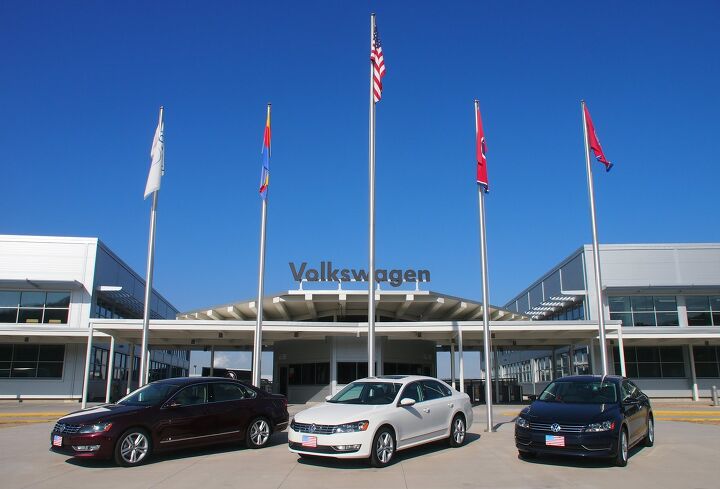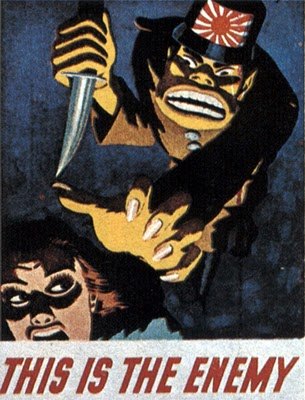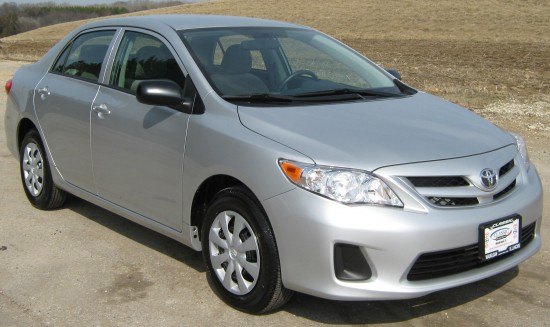#Currency
Sergio Marchionne Is Alarmed By FCA's Sudden Canadian Downturn, And Rightly So
With Jeep as the fastest-growing auto brand in the country and Ram pickup truck sales soaring to record levels, Fiat Chrysler Automobiles was Canada’s top-selling automobile manufacturer in calendar year 2015.
It was the first year in the company’s 90-year history that FCA (or DaimlerChrysler, or Chrysler Group, or whatever it was known as) outsold all other manufacturers.
Yet in claiming the top-selling mantle, FCA’s Canadian market share decreased marginally, falling from 15.6 percent in 2014 to 15.4 percent in the automaker’s highest-volume year to date.
Fast forward nine months and FCA boss Sergio Marchionne finds the company’s Canadian situation, “alarming,” according to Automotive News Canada. How bad is it? And how did the tide turn so quickly?
Automakers Are Taking a Beating Over China
Stocks for automakers such as General Motors, Fiat Chrysler Automobiles and Ford took a pounding Tuesday after China devalued its currency in an effort to boost exports from the country, stemming the economic slowdown already underway.
In a statement released Tuesday, GM said it had enough of a local supply chain within China to offset its exposure to international currency fluctuations.
“We believe that our exposure is limited and manageable, and do not expect that the devaluation will have a material impact on the company’s financial performance,” the company wrote.
Volkswagen Won't Cut Prices to Chase Market Share in U.S.
Even with a depressed euro and sales falling 2.7 percent in April, Volkswagen is staying the course.
Ford's Hinrichs Accuses Toyota of Profiting From Currency Manipulation
In a speech given to an Economic Club of Chicago luncheon held in conjunction with the Chicago Auto Show media preview, Ford Motor Company’s president for the Americas Joe Hinrichs criticized Japan and Toyota in particular for benefiting from currency manipulation. Hinrichs said Ford would “urge Congress to oppose a TPP [Trans-Pacific Partnership currently being negotiated.] if it does not include strong currency disciplines.”
Akio Toyoda Sees Emerging Markets' Growth Slowing, Uncertainties in China, Japan
Bloomberg is reporting that Akio Toyoda, president of Toyota Motor Corp. and scion of its founding family said that a slowdown in emerging markets and uncertainty over demand in both China and the Japanese home market makes 2014 “unpredictable”.
Ford's Profits in Latin America Wiped Out as Venezuela Devalues Currency by 44%
Ford Motor Company assembly plant in Valencia, Venezuela.
Ford Motor Company announced last week that instead of making money in Latin America this year, it will likely lose $350 million in the region because the government of Venezuela devalued its currency, the bolivar, by 44%. Ford is currently holding more than $700 million in bolivars that it cannot exchange or repatriate. The Venezuelan government is trying to conserve its hard currency reserves and it will not give Ford dollars for bolivars. FoMoCo, which has built vehicles in Venezuela since 1962 and currently operates an assembly plant in Valencia, really doesn’t have any options other than to write down the loss. The car company can’t very well try to exchange currency on the black market. Other international companies, including Toyota, face similar situations with their operations in Venezuela.
Detroit News Declares Japanese Price War, Needs New Calculator
Yesterday, the Detroit News warned of a sneak attack by the Japanese on the U.S. auto market:
“Nissan Motor Co.’s take-no-prisoners approach to gaining U.S. market share has the auto industry worried that a price war is brewing that will erode the profit progress made since the recession ravaged auto sales.”
According to the Detroit paper, Nissan’s recent price reductions are
“the first sign of a Japanese automaker taking advantage of the weakening yen that Prime Minister Shinzo Abe has pushed down to improve Japan’s economy. That currency’s 15 percent swoon versus the dollar since Oct. 31 gives Japanese automakers an extra $1,500 per car they can use to cut prices or offer additional features while keeping prices even.”
It’s only a sign if you are both blind and fact-resistant.
Toyota USA Looking To Go Import-Free?
The inevitable march to American-made “imports” continues, as one Toyota official recently declared his desire to see every single Toyota sold in America to be a made-in-USA product.
Are You Ready For: An American Volvo?
The national character of auto brands is a tricky thing. For decades, Volvo wore its Swedishness on its sleeve, emphasizing the values that made Ikea, Abba and Swedish porn so popular in the US… even when it was an outpost of the Ford empire. And then the unthinkable happened: Chinese up-and-comer Li Shufu bought the brand and rolled it into his Geely empire. In the world of national-character-branding, being bought by a Chinese firm is something like hiring Casey Anthony as a brand ambassador, or using a mascot called “Mr Melamine Milk” (another nightmare scenario can be found here). So, how does a brand like Volvo, that was built on Swedishness, get past the “China Factor”? By doubling down on Swedishness? How about by building cars in the US?
Will Rising Euro Push Alfa/Jeep Compact CUV Production To Toledo?
Bloomberg reports that Fiat is considering moving production of planned Alfa/Jeep-branded compact CUVs from its Italian Mirafiori plant to the US, as a rising Euro forces tough production choices. Production of some 280,000 units per year were planned to start at Mirafiori in late 2012, but Fiat may now build an as-yet unannounced subcompact there instead. According to Bloomberg’s reporting, Fiat/Chrysler CEO Sergio
Marchionne, while confirming his commitment to invest at the Turin facility, told Piedmont Region President Roberto Cota Aug. 29 that he may change the production plans for the plant.
“Fiat is evaluating which model it will build at Mirafiori,” Cota said after meeting the CEO.
Japanese Automakers: Sayonara, Japan
Japanese automakers will move their production elsewhere if the yen keeps rising. This is what Toshiyuki Shiga, chairman of the Japan Automobile Manufacturers Association, told The Nikkei [sub] in a very blunt interview. Shiga, who is also the COO of Nissan, said that power shortfalls and the strong yen are the biggest impediment to Japan’s most important industry.
Japanese Automakers And Unions To Government: Lower Then Yen, Or We Are Out Of Here
In an (especially for Japanese tastes) strongly worded joint statement, Toshiyuki Shiga. Chairman of Japan Automobile Manufacturers Association, and Koichiro Nishihara, President of the Confederation of Japan Automobile Workers’ Unions threw down the gauntlet to the Japanese government. Executive summary: “We are sick as hell of the high yen and we can’t take it anymore. Do something, or kiss those jobs sayonara.”
Toyota To Japanese Government: If The Yen Gets Any Stronger, We Go
Despite the riproaring profit numbers, there is trouble in Toyota City. The ever appreciating yen is gobbling up ToMoCo’s profits. Message from Toyota to the Japanese government: “Do something, or we leave.”
Despite Currency Woes, Hyundai Earned $1.2b In The First Three Quarters Of 2010
Japanese Automakers To Japanese Government: Want More Jobless? No Problem, We Can Deliver
Did we mention that there is a steady drumbeat by Japanese companies that openly think about, or deny (with huge qualifications) moving more and more production outside of Japan? Did we imply that a lot of this noisy thinking might be targeted at the current Japanese administration with which the carmakers are as much at odds as a carmaker can be with an administration that comes with full union backing and is full of former union officials? (Oops, never mind.) Anyway, Japanese carmakers are accusing their government of losing the war of the soft currency (led by the U.S. that lets its dollar slide while accusing others of manipulating their currencies – a good offense beats any defense.) Now the rhetoric is getting less circumspect.

























Recent Comments